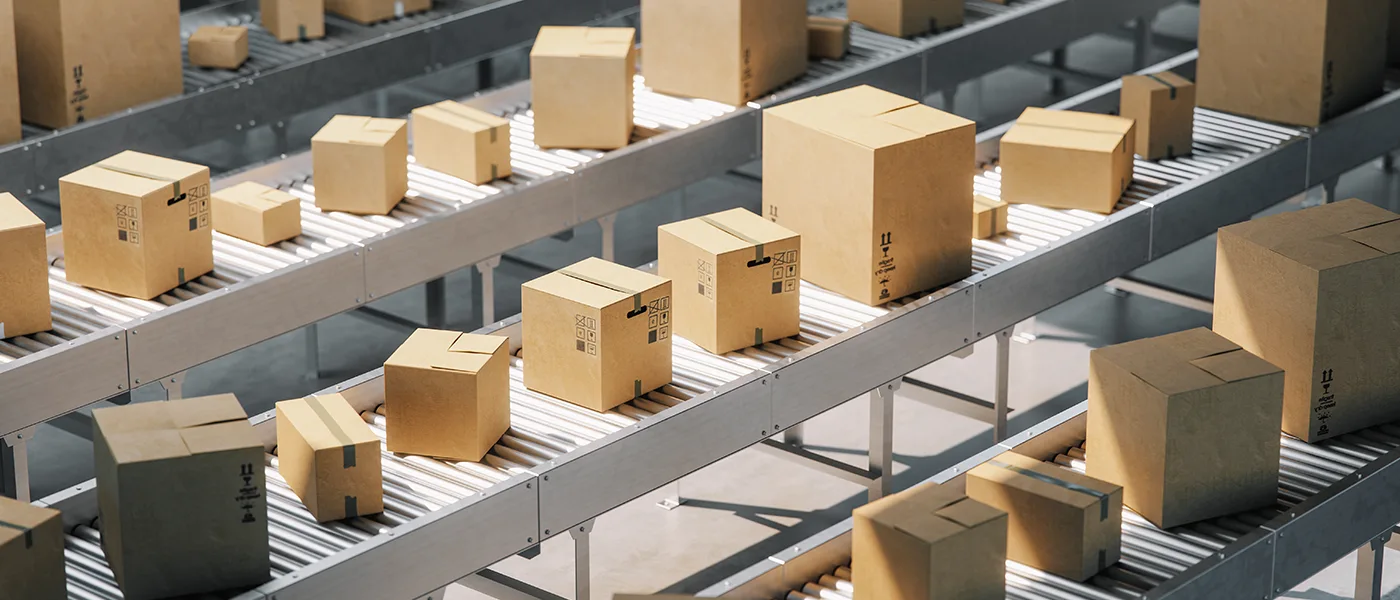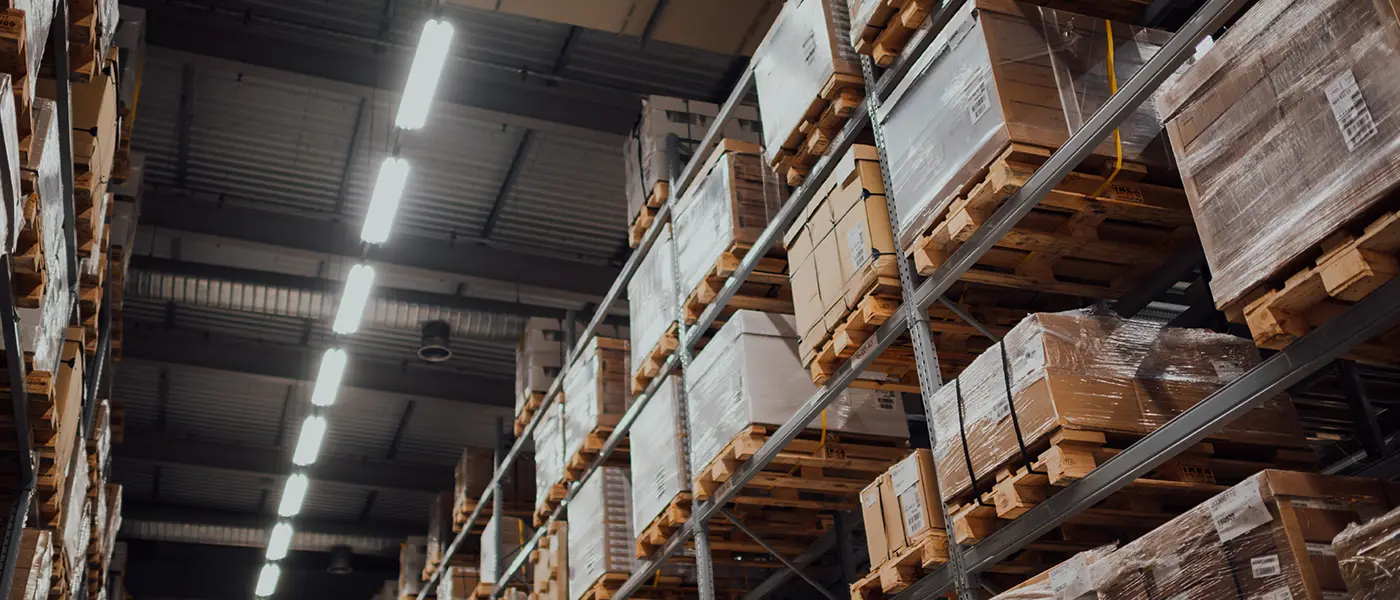In the bustling world of e-commerce, where the movement of goods knows no boundaries, efficient shipping practices are necessary to ensure timely deliveries and customer satisfaction.
Dunnage, commonly defined as protective packaging materials used to secure and cushion cargo during transportation, holds immense significance in safeguarding goods, reducing damage, and optimizing the supply chain.
In this article, we delve into the world of dunnage in shipping and explore its overall effect on the rapidly growing e-commerce industry. Without further ado, let’s dive in!
What Is Dunnage?
Dunnage refers to materials or devices used to secure, support, and protect cargo during transportation or storage. It plays a vital role in ensuring the safety and integrity of goods by preventing damage, movement, or shifting during handling, loading, or transit. Dunnage can be made of various materials such as wood, plastic, foam, or metal, depending on the specific requirements of the cargo being transported.
In transportation and logistics, dunnage is commonly used to fill gaps, stabilize loads, and provide cushioning. It helps to prevent products from colliding with each other or with the walls of shipping containers, trucks, or railcars. By minimizing movement and vibrations, dunnage reduces the risk of damage caused by impacts, abrasion, or compression. It is particularly crucial for fragile, delicate, or high-value goods that require extra protection.
Different types of dunnage include pallets, strapping, bracing, blocking, airbags, foam inserts, corner protectors, and void fillers. These dunnage materials are strategically placed and secured to support the cargo, distribute weight evenly, and prevent shifting or tipping during transportation.
Beyond its protective function, dunnage also plays a role in optimizing loading efficiency. By utilizing dunnage effectively, cargo can be packed more densely, maximizing the use of available space and reducing transportation costs. Additionally, dunnage can aid in compliance with regulations and industry standards for secure and safe transport.
Dunnage requirements vary depending on the nature of the cargo, mode of transportation, and specific industry standards. For example, dunnage used in the automotive industry may differ from that used in the food and beverage industry. It is essential for businesses involved in logistics and shipping to understand the specific dunnage needs of their products and ensure proper selection, installation, and inspection of dunnage to ensure the safe and secure transport of goods.
Why Shippers Use Dunnage
Shippers use dunnage for a variety of reasons to ensure the safe and secure transport of goods. Here are some key reasons why shippers utilize dunnage:
1. Protection of Goods
The primary purpose of using dunnage is to protect goods from damage during transportation. Dunnage materials such as foam inserts, airbags, and cushioning help absorb shocks, vibrations, and impacts that may occur during handling, loading, or transit. By preventing collisions, abrasion, or compression, dunnage safeguards products from potential harm and maintains their quality and integrity.
2. Stabilization and Load Security
Dunnage helps stabilize and secure cargo within shipping containers, trucks, or railcars. By filling gaps, bracing, or blocking, it prevents the cargo from shifting or moving during transit. This minimizes the risk of load imbalance, tipping, or damage caused by cargo movement. Properly secured cargo also improves handling efficiency and reduces the chances of accidents or injuries during loading and unloading.
3. Compliance with Regulations and Standards
Shippers use dunnage to comply with regulations and industry standards for safe and secure transport. Regulatory bodies, such as the International Safe Transit Association (ISTA) and the International Maritime Organization (IMO), have guidelines and requirements for packaging and securing goods during transportation. Shippers employ dunnage solutions that meet these standards to ensure compliance and mitigate risks associated with non-compliance.
4. Maximizing Space Utilization
Dunnage allows shippers to optimize the use of available space and maximize the efficiency of transportation. By strategically placing and arranging dunnage materials, cargo can be packed more densely, reducing empty spaces and minimizing wasted space. This helps shippers maximize the number of products transported in a single shipment, leading to cost savings and improved operational efficiency.
5. Customization and Flexibility
Dunnage solutions can be customized to fit specific cargo requirements. Shippers can choose from a variety of dunnage materials, such as wood, plastic, or foam, and select the appropriate type and configuration based on the nature of the cargo. This flexibility allows shippers to tailor dunnage to the unique characteristics of their products and ensure optimal protection and stability during transit.
In summary, shippers use dunnage to protect goods, stabilize loads, comply with regulations, optimize space utilization, and provide customization and flexibility. By employing dunnage effectively, shippers can mitigate risks, enhance cargo safety, and maintain the quality and integrity of goods during transportation.
The Role Of Dunnage In E-Commerce
In the world of e-commerce, where products are shipped and delivered to customers all around the globe, the importance of proper packaging and protection cannot be overstated. One crucial element in ensuring the safe transportation of goods is dunnage. Dunnage refers to the materials used to fill empty spaces within packaging or shipping containers to prevent movement, minimize damage, and maintain product integrity. Its role in e-commerce is vital for a variety of reasons.
First and foremost, dunnage serves as a protective barrier against the jostling and vibrations that occur during shipping. Whether products are transported by air, sea, or land, they are subjected to constant movement and potential impacts. By filling empty spaces with dunnage materials such as foam, bubble wrap, or packing peanuts, the risk of damage due to collisions or rough handling is significantly reduced. This is particularly important for fragile items, electronics, or products with sensitive components.
Moreover, dunnage plays a crucial role in preventing product shifting. During transportation, packages may be stacked, tilted, or turned in various directions, which can cause products to move within their packaging. Such movement can lead to damage, breakage, or even complete product failure. By utilizing dunnage, whether in the form of custom inserts, partitions, or dividers, items can be securely held in place, minimizing the potential for shifting and maintaining their structural integrity.
Another significant benefit of dunnage in e-commerce is its ability to provide cushioning and shock absorption. Packages may encounter unexpected drops, impacts, or sudden changes in velocity during transit. Without proper cushioning, the force of such events can be directly transmitted to the enclosed products, resulting in damage or breakage. Dunnage materials, such as air pillows, foam sheets, or corrugated inserts, act as a buffer, absorbing and dispersing shocks to protect the contents of the package.
Furthermore, dunnage contributes to the overall customer experience in e-commerce. When customers receive their orders, the condition of the products has a direct impact on their satisfaction and perception of the seller. Damaged or broken items not only result in disappointed customers but can also lead to costly returns, replacements, or negative reviews. By employing effective dunnage solutions, businesses can ensure that products arrive in excellent condition, reinforcing customer trust and loyalty.
Dunnage plays an indispensable role in the world of e-commerce. Its primary purpose is to protect products during shipping by minimizing movement, preventing shifting, providing cushioning, and absorbing shocks. By employing appropriate dunnage materials and techniques, businesses can significantly reduce the risk of damage, enhance customer satisfaction, and maintain product integrity. As e-commerce continues to grow and evolve, the importance of dunnage as a vital component of the packaging and shipping process cannot be understated.
The 9 Types Of Dunnage
Dunnage plays a critical role in ensuring the safe transportation of goods in various industries, including e-commerce, manufacturing, and logistics. It refers to the materials used to fill empty spaces within packaging or shipping containers to prevent movement and protect products during transit. There are several types of dunnage available, each designed to suit specific packaging needs. Let’s explore nine common types of dunnage and their unique characteristics:
1. Foam
Foam dunnage is widely used due to its excellent cushioning properties. It comes in various forms, including foam sheets, foam blocks, and custom-molded foam inserts. Foam provides effective protection against impacts and vibrations, making it ideal for fragile or delicate items.
2. Bubble Wrap
Bubble wrap is a popular choice for protecting items during shipping. It consists of small air-filled bubbles trapped between layers of plastic film. The bubbles act as a cushion, absorbing shocks and preventing damage caused by impact.
3. Air Pillows
Air pillows are inflatable plastic bags that provide cushioning and void fill. They can be easily inflated using an air compressor or pump. Air pillows are lightweight, cost-effective, and offer good protection against shocks and vibrations.
4. Packing Peanuts
Packing peanuts, also known as foam peanuts or loose fill, are lightweight and cost-effective dunnage. They are made from expanded polystyrene (EPS) or biodegradable materials and are commonly used to fill empty spaces and provide cushioning within packages.
5. Corrugated Inserts
Corrugated inserts are made from corrugated cardboard and are often used as dividers or partitions within shipping boxes. They provide structure and support, preventing products from shifting and colliding during transportation.
5. Molded Pulp
Molded pulp dunnage is made from recycled paper materials and is environmentally friendly. It is commonly used for cushioning and protecting fragile items such as electronics, glassware, or ceramics. Molded pulp dunnage can be custom-designed to fit specific product shapes and sizes.
6. Dunnage Bags
Dunnage bags, also known as airbags or inflatable bags, are placed in the void spaces between products or in larger shipping containers. They are inflated to create a tight fit, preventing movement and securing the items in place. Dunnage bags are particularly useful for stabilizing heavy or irregularly shaped goods.
7. Cardboard Inserts
Cardboard inserts are flat, rigid pieces of cardboard used to separate and protect products within a package. They provide stability, preventing items from coming into direct contact and potentially getting damaged during transit.
8. Custom Inserts
Custom inserts are designed specifically for a particular product or packaging requirement. They are typically made from materials like foam, corrugated cardboard, or molded pulp. Custom inserts offer the highest level of protection by securely holding products in place and minimizing any potential movement.
Each type of dunnage serves a specific purpose and offers unique advantages depending on the nature of the products being shipped. By choosing the appropriate dunnage solution, businesses can ensure the safe delivery of their goods, minimize damage, and enhance customer satisfaction.
How Dunnage Can Help Your Business
In the fast-paced world of business, ensuring the safe and secure transportation of products is vital for maintaining customer satisfaction, minimizing losses, and protecting your brand reputation. Dunnage, materials used to fill empty spaces within packaging or shipping containers, plays a crucial role in achieving these objectives. Here are some ways in which dunnage can help your business thrive.
First and foremost, dunnage helps protect your products during transit. By filling empty spaces, it minimizes movement, preventing items from shifting or colliding. This reduces the risk of damage caused by impacts, vibrations, or rough handling. With proper dunnage in place, you can have confidence that your products will reach their destination in excellent condition, leading to satisfied customers and positive reviews.
Effective dunnage solutions also contribute to operational efficiency. By utilizing the right materials and techniques, you can optimize the use of space within packaging or shipping containers. This ensures that you are making the most efficient use of available resources and reducing wasted space. Maximizing packing density not only saves on shipping costs but also allows for more products to be transported in a single shipment, improving logistics and reducing the environmental impact of your operations.
Moreover, dunnage can streamline your packaging processes. Customized dunnage solutions can be designed to fit specific products, simplifying the packing and unpacking procedures. This saves time and effort, allowing your employees to focus on other essential tasks. By optimizing packaging efficiency, you can enhance productivity and reduce labor costs.
Another way in which dunnage can benefit your business is by minimizing returns and replacements. Damaged products not only result in dissatisfied customers but also incur additional expenses in terms of reverse logistics, restocking, and shipping. By investing in proper dunnage solutions that provide adequate protection, you can significantly reduce the likelihood of product damage during transit. This leads to fewer returns and replacements, ultimately improving your bottom line.
Furthermore, incorporating effective dunnage solutions into your packaging demonstrates a commitment to quality and professionalism. It sends a message to your customers that you care about their satisfaction and take the necessary measures to ensure their products arrive intact. This can enhance your brand reputation, foster customer loyalty, and even attract new customers through positive word-of-mouth.
In summary, dunnage plays a vital role in helping your business succeed. By protecting your products, optimizing space utilization, streamlining packaging processes, minimizing returns, and enhancing your brand reputation, dunnage solutions contribute to customer satisfaction, operational efficiency, and cost savings. Investing in the right dunnage can have a significant positive impact on your business, ensuring smooth and successful product transportation while positioning you as a trusted and reliable supplier in your industry.
Conclusion
Dunnage in shipping is an essential component for businesses seeking to ensure the safe and secure transportation of their products. By filling empty spaces, providing cushioning, and preventing movement, dunnage plays a crucial role in minimizing damage, protecting product integrity, and enhancing customer satisfaction. The wide range of dunnage options available, from foam and bubble wrap to custom inserts and dunnage bags, allows businesses to tailor their packaging solutions to meet specific requirements.
Whether it’s fragile electronics, irregularly shaped items, or delicate components, dunnage provides the necessary protection to withstand the rigors of transportation. By investing in effective dunnage solutions, businesses can minimize losses, reduce return rates, and maintain a positive brand reputation. As the world of shipping and e-commerce continues to evolve, recognizing the importance of dunnage and utilizing it appropriately will be crucial for businesses to thrive in an increasingly competitive marketplace.
FAQs
What is an example of dunnage?
An example of dunnage is foam padding used to protect fragile items during shipping.
What is a dunnage equipment?
Dunnage equipment refers to tools or machinery used for handling and securing dunnage, such as air compressors for inflating dunnage bags.
What is steel dunnage?
Steel dunnage refers to dunnage made from steel materials, often used for heavy-duty applications that require high strength and durability.
What type of wood is used for dunnage?
The type of wood commonly used for dunnage is typically inexpensive and readily available softwood, such as pine or spruce.
What is the common type of dunnage used onboard?
The common type of dunnage used onboard is typically dunnage bags, which are inflatable bags used to fill void spaces in shipping containers or trucks.
Where is dunnage usually found?
Dunnage is usually found within packaging, shipping containers, or in the empty spaces between products to prevent movement and provide cushioning.





